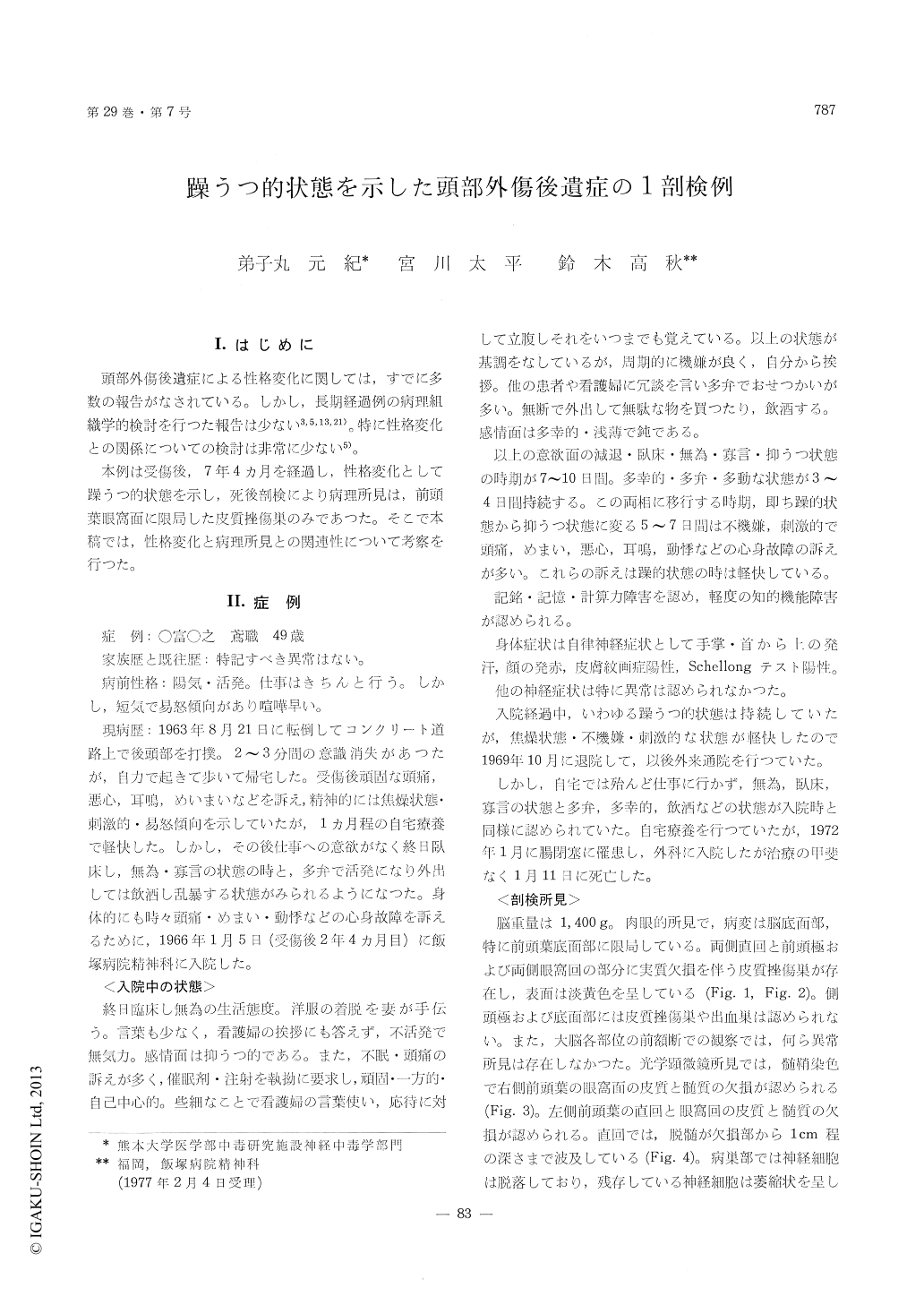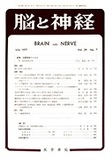Japanese
English
- 有料閲覧
- Abstract 文献概要
- 1ページ目 Look Inside
I.はじめに
頭部外傷後遺症による性格変化に関しては,すでに多数の報告がなされている。しかし,長期経過例の病理組織学的検討を行つた報告は少ない3,5,13,21)。特に性格変化との関係についての検討は非常に少ない5)。
本例は受傷後,7年4カ月を経過し,性格変化として躁うつ的状態を示し,死後剖検により病理所見は,前頭葉眼窩面に限局した皮質挫傷巣のみであつた。そこで本稿では,性格変化と病理所見との関連性について考察を行つた。
M. M. a man aged 49. He suffered from a head injury at the aged of 41. At that time he lost consciousness for a few minutes and he was diagnosed as a consquassatio cerebri.
The sequelaes of his head injury were a change of character and a disturbance of autonomic nerve function. The changes of character were decrease of activity, lie-down for all day, decrease of speech and depressive mode, and occasionally he was ill-humored, restless and irritative. Periodically he became euphoric, talkative and childisch. He had a disturbance of autonomic nerve function which became worse in parallel to the depressive states.
We speculated that character changes, such as manic-depressive states and disturbance of autonomic nerve function were due to the bruising of the bilateral orbital surfaces of frontal lobes.

Copyright © 1977, Igaku-Shoin Ltd. All rights reserved.


